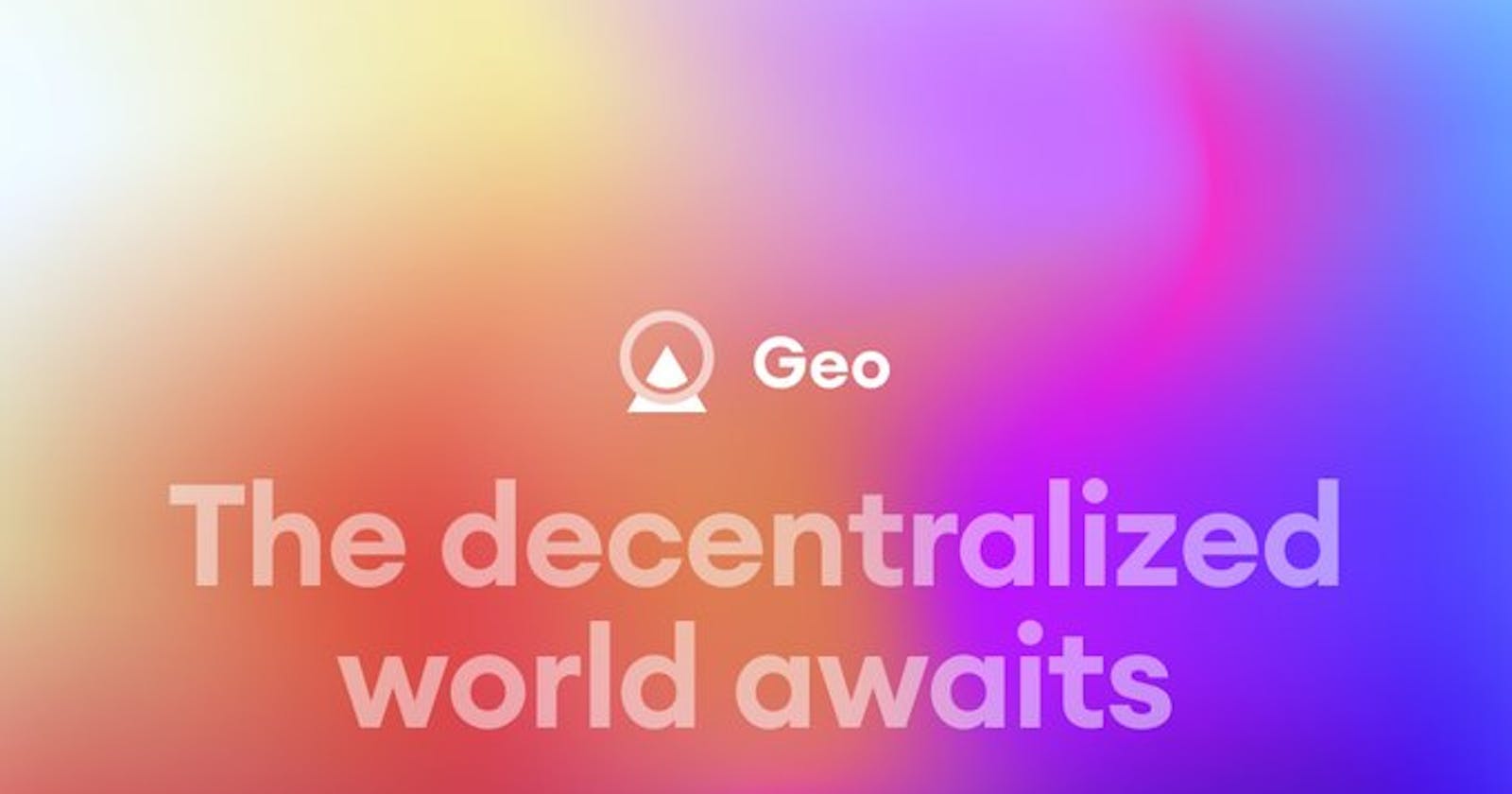Yaniv Tal, CEO of Edge & Node, announced and launched Geo at The Graph Day. Everyone can register at https://edgeandnode.com/geo/ to get on the waitlist for the beta, or go to https://www.geobrowser.io/.
But first, let’s learn about Geo and how it fits into The Graph’s ecosystem and history.
The Graph: Indexes for Querying Blockchain Networks and IPFS
Yaniv had a vision in 2017 when he co-founded The Graph to be an indexing service for the blockchain and the world’s knowledge, which needs a complex set of infrastructures to index data in a decentralized way, with different roles such as indexers, delegators, and curators.
When we consider the types of data currently on The Graph, we realize we are dealing with a relatively small dataset. The crypto world focuses on DeFi, NFTs, DAOs, and, more recently, social media. However, these areas do not represent the world's public knowledge. There is still a need to organize all of this knowledge decentralized, which is where Geo comes in.
Everest: A Universal Shared Project Registry
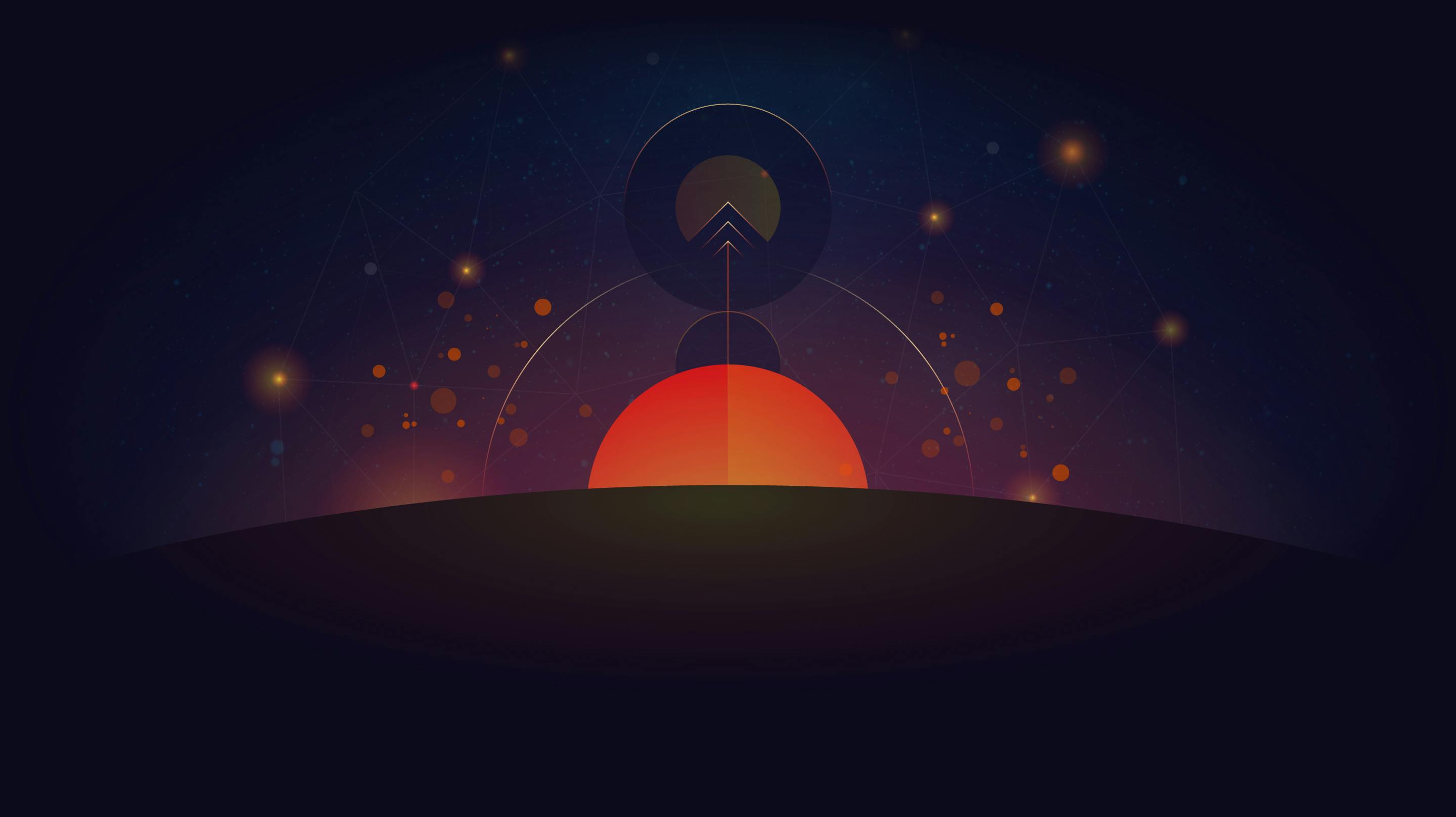
In 2019, Yaniv published “The Path to Web3,” where he laid out why the world needs Web3 and how we are going to get it. The first step was launching “Everest”, a simple DApp serving as a projects registry so people can add to the list and curate it. At that time, there weren’t many DApps around except for DeFi ones; launching this DApp was to show the public we could build more than DeFi DApps.
This was revolutionary for token curated registries (TCRs), which aim to create and maintain lists through the people who created them. Everest significantly educated people about the curator's role in The Graph before launching the network. Essentially, curators signal on subgraphs to indexers on the Graph network, which is an important responsibility.
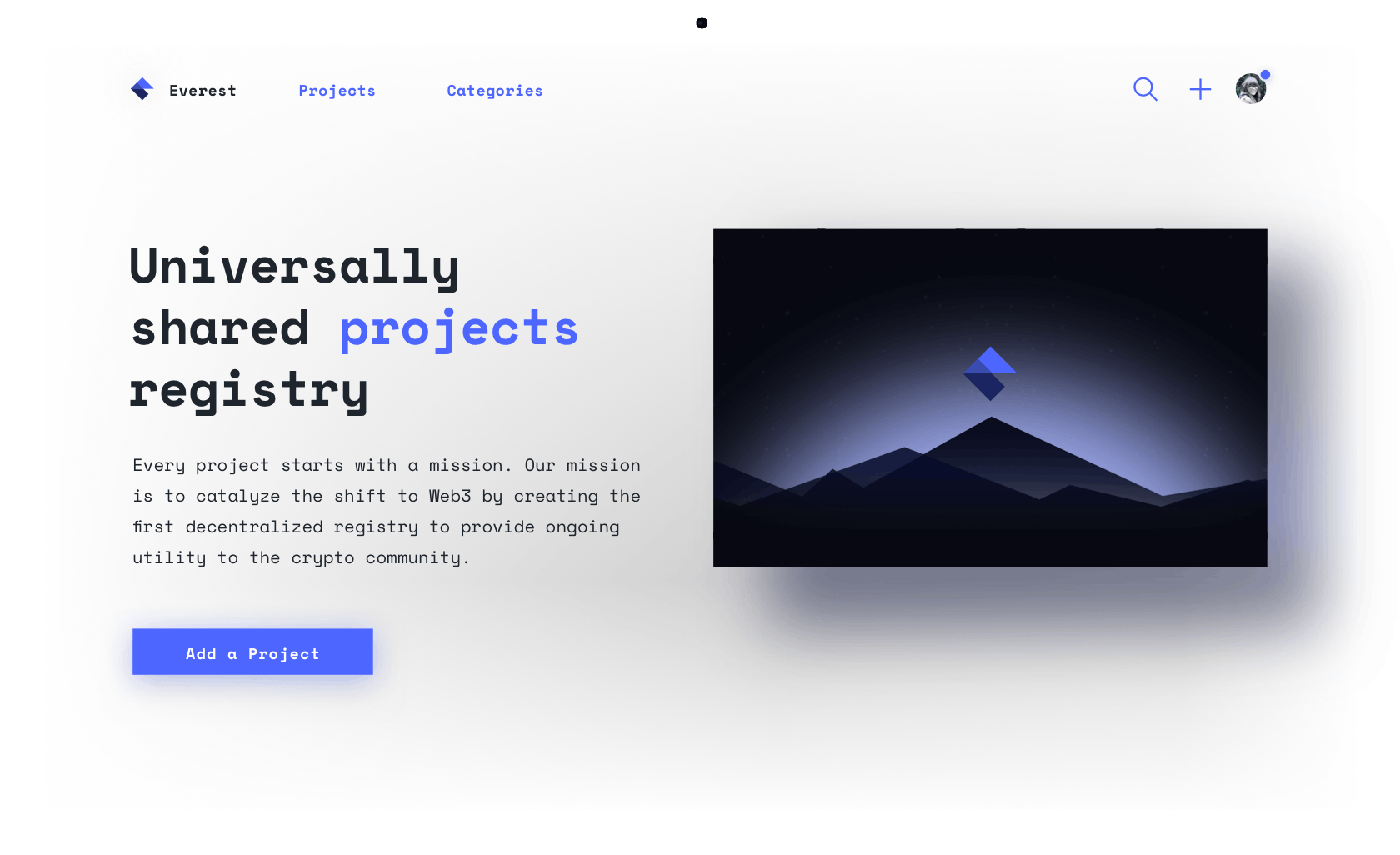
Unless you have technical skills and plan to build subgraphs independently, your role in helping organize the world's knowledge data and information may be limited. However, The Graph's goal is to enable anyone to contribute and help organize data and knowledge accessible on The Graph, not only for developers but also for non-developers.
“We'll be launching Everest soon and hope you'll join us in jumpstarting the network effects for Web3. As the platform grows, we plan to link to personal profiles, jobs, events, and blogs - all curated on Web3.”
- Yaniv Tal - The Path to Web3 - 2019
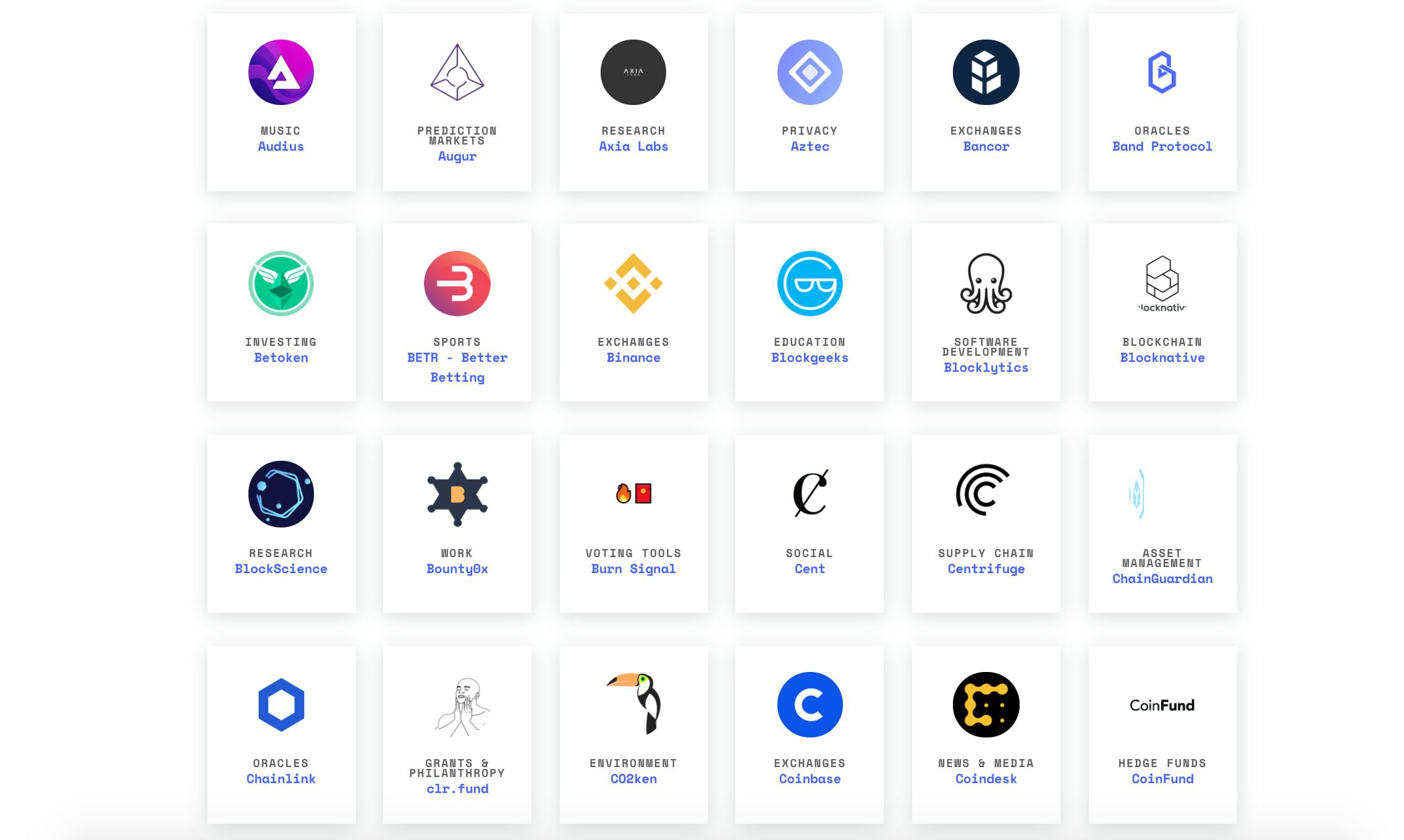
The idea was to index and organize information related to crypto data in DeFi on Web3 to make it more closely connected to real-life data and, therefore, more authentic. However, this approach had its limitations. Since 2019, we have seen the rise of NFTs, and 2020 was the year of DAOs, which continue to grow. Social graphs such as the Lens ecosystem have become more popular as people are beginning to realize that crypto and Web3 are real by publishing personal profiles, jobs, and blogs on Web3.
Geo: The first Decentralised Browser and a Graph App
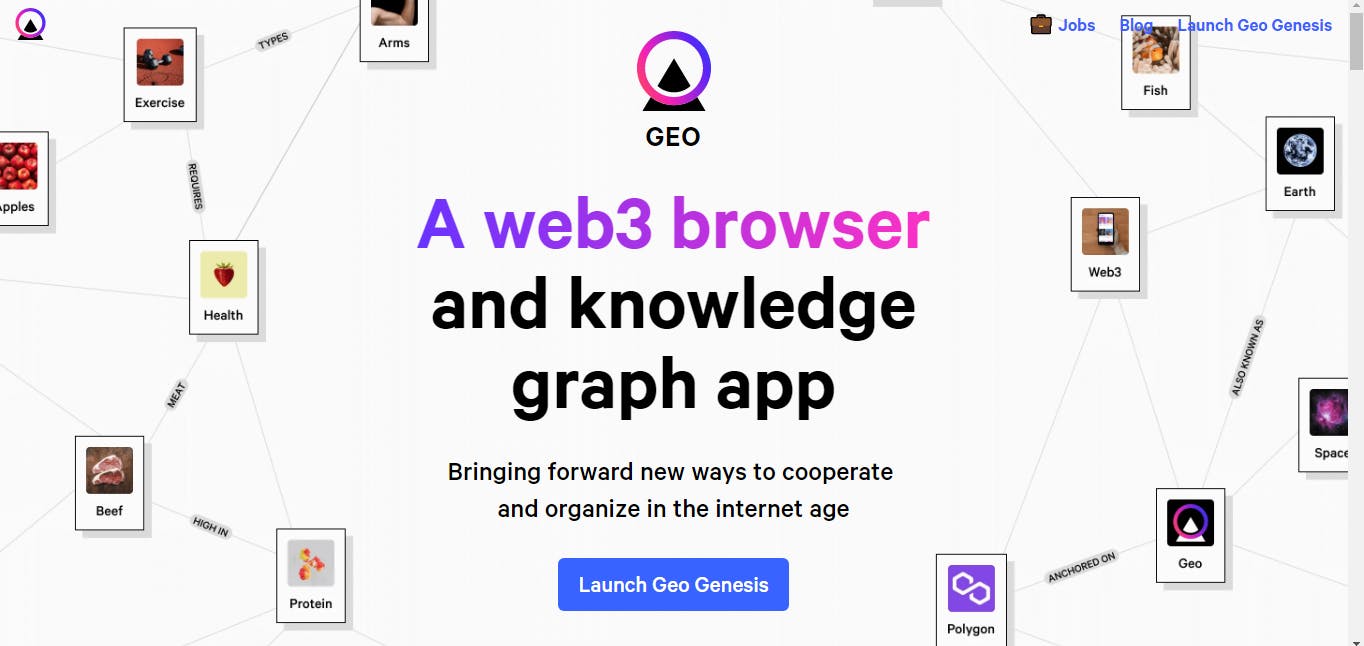
Geo, as demoed at The Graph Day, is a Web3 browser and a knowledge graph app; a product of Edge & Node company, which later separated as Geo browser company, and it is built on React Native by a small team who decided to focus on The Graph web app.
Data in Geo can be verified using the triple rule's fact principle. According to this rule, each entry should have at least three components: Entity, attribute, and value. Users can add more facts to the same entry to provide further details.
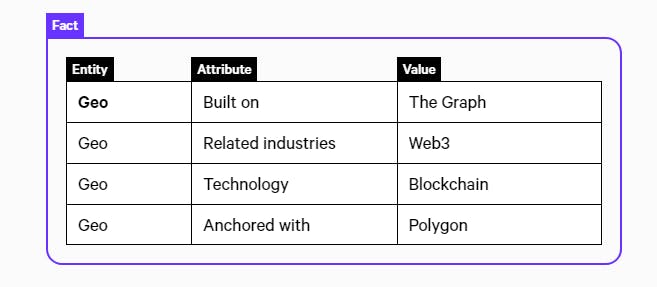
The fact database is indexed on The Graph, stored on IPFS, and anchored on Polygon. Developers can rest assured that everything will be open-sourced with the public release.
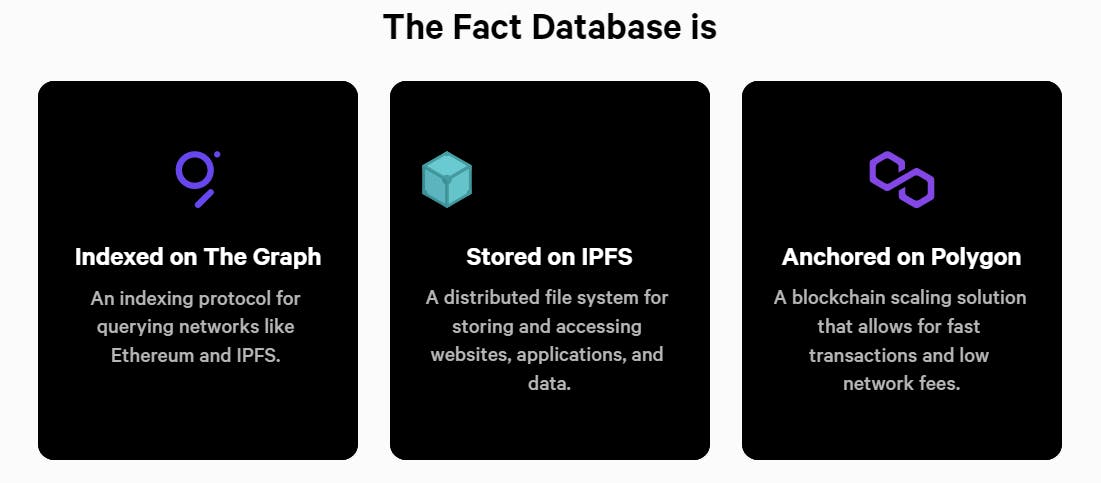
When you’re on the Geo browser page you will notice a blue button labeled “Launch Geo Genesis,” which represents the second part we discussed above; hitting this button will take you there.
Geo Genesis
With Geo Genesis, we organize knowledge and information by providing communities with the necessary tools. At the top level, we have spaces. Each space has its own community setting and organizes its set of data. Spaces can be nested inside each other, creating a hierarchy.
Each space has its own smart contract. As mentioned, they are anchored on the Polygon Network, with data stored on IPFS and indexed on The Graph. Among these spaces are philosophy and wellness and the crypto space.

The crypto space may be more familiar to those who are crypto natives or are friendly to crypto. You will see raw data for each entity in this space when you click on it. The default filter or theme is blockchain, which includes chains such as BSC, Arbitrum, Gnosis, and more.
On the page, you can find two tables. The first is an entity table containing facts presented in key-value pairs. The second is a triple table, a core concept of the knowledge graph. It contains facts presented as entity, attribute, and value.
With crypto, understanding the triple table is easy. Simply give assets or tokens a name and symbol, and add attributes such as the type (e.g., ERC20 token) and the address of its smart contract. We can establish relationships similar to those in databases by selecting an attribute and viewing all entries that reference it.
The entities table is primarily used for categorizing and clustering data. For example, we have the "blockchain" type in the crypto space. By clicking on it, a dropdown list appears, showing other available types to choose from. When selecting a type, a table of all the attributes associated with that type is displayed. It's important to note that an Entity can have multiple types.
Entity Pages
The Geo team is working on entity pages similar to Notion pages. These pages allow you to add your own text related to an entity and customize which tables or columns to see and how they are displayed. This feature makes it easier to create custom pages with visual components that lead to dashboard components for every entity.
The Geo team aims to eventually have all of the world's public knowledge and information available through the platform, with a user interface optimized for browsing this data using entity pages. The team is nearly ready to onboard more contributors to help expand the platform's data. No technical skills are needed to contribute data, and tables can be easily constructed. Additionally, the platform has a governance system in place.
Currently, only admins have editing privileges, and you may need to be manually added to a space before you can start editing. However, this allows people to create their own custom governance system, such as a reputation system with a voting process, where users can vote on proposed changes and decide whether or not to accept them.

In DAOs Governance systems, it is considered data, but let’s think about the industrial revolution when scientific communities and societies established a consensus system to get the information we have today.
Imagine using this system in media and journalism to fight against fake news. Journalists can verify information about what's happening worldwide and deliver accurate messages to their readers.
The outdated methods and societies could not keep up with the fast pace of change brought about by the internet. Many became politically corrupted due to centralized entities' concentration of ownership and power.
The governance system currently built on Geo for organizing knowledge and information based on consensus is important for society. There will be a great deal of experimentation on Geo in the future.
Geo Explorers
This product will be available in a few weeks as part of a program exclusively for Graph advocates. The Geo Explorers program will allow participants to work closely with the Geo team and be the first to contribute knowledge and information to Geo ⇒ Geo Genesis.

The project will be completed in three phases: the Geo Pioneers, the Geo Settlers, and the Geo Tycoons. The first phase, Geo Pioneers, will focus on the crypto space. When The Graph started the Everest project, there were about 1,000 projects listed. Now, there are more than 10,000 projects listed on Everest.
The Geo Pioneers
During this phase, Geo Genesis will provide more data and details about various NFT collections, DAOs, DeFi projects, etc. This will expand the information on the crypto projects listed on the platform.
The next step will be pulling data from subgraphs directly into Geo instead of manually inputting the data as is currently done. Additionally, to make it more relevant to real life, we can list jobs and create a job board linking each crypto project to its listed jobs. This makes the experience closer to reality, as we discussed before.
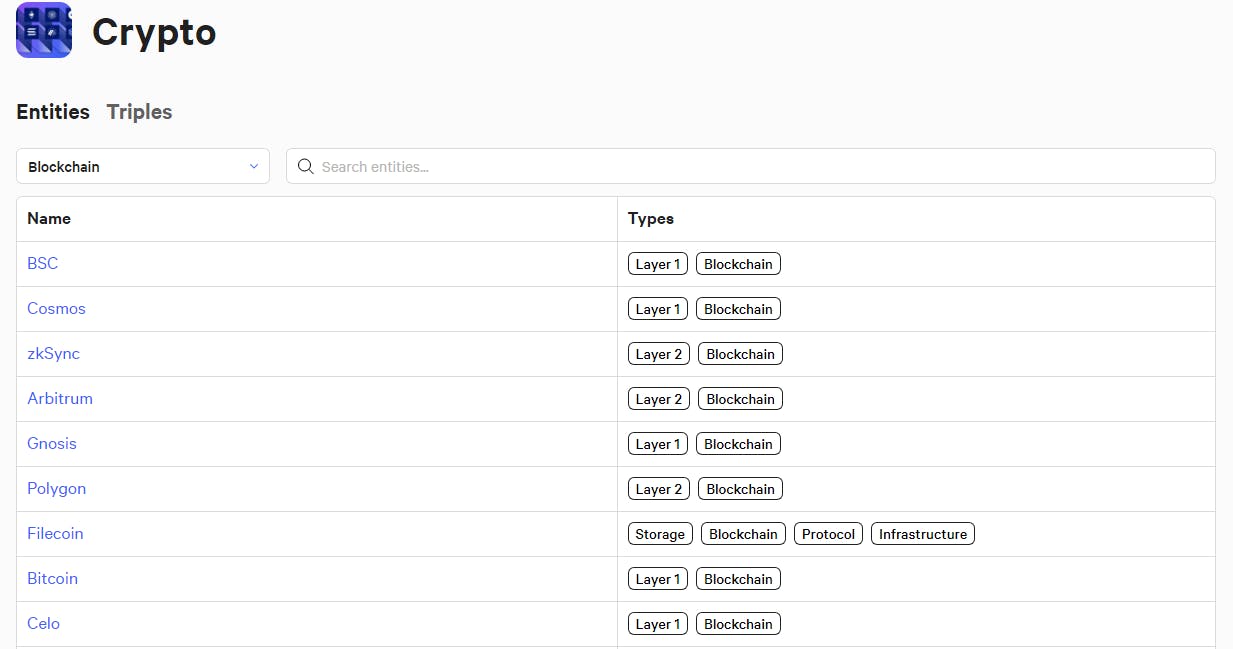
These jobs can have types and attributes, such as whether they are full-time or entry-level, and the required skills. There are many possibilities. For example, you could list events around a certain conference where people often ask about side events or where to find them.
The Geo Settlers
After the Pioneers phase, we will move to the Settlers phase, including fun spaces for people interested in different things. For example, the Philosophy space currently features some Greek philosophers and their concepts, providing life advice that can come in handy when making ethical decisions in governance systems.

In addition, the health space is included in this phase, with over 10,000 triples related to all health types and attributes that need to be organized. However, for this phase, we will focus on entertainment, such as theatre, movies, and music. A feature coming soon is a decentralized ranking system, which will make it possible to establish a rating system.
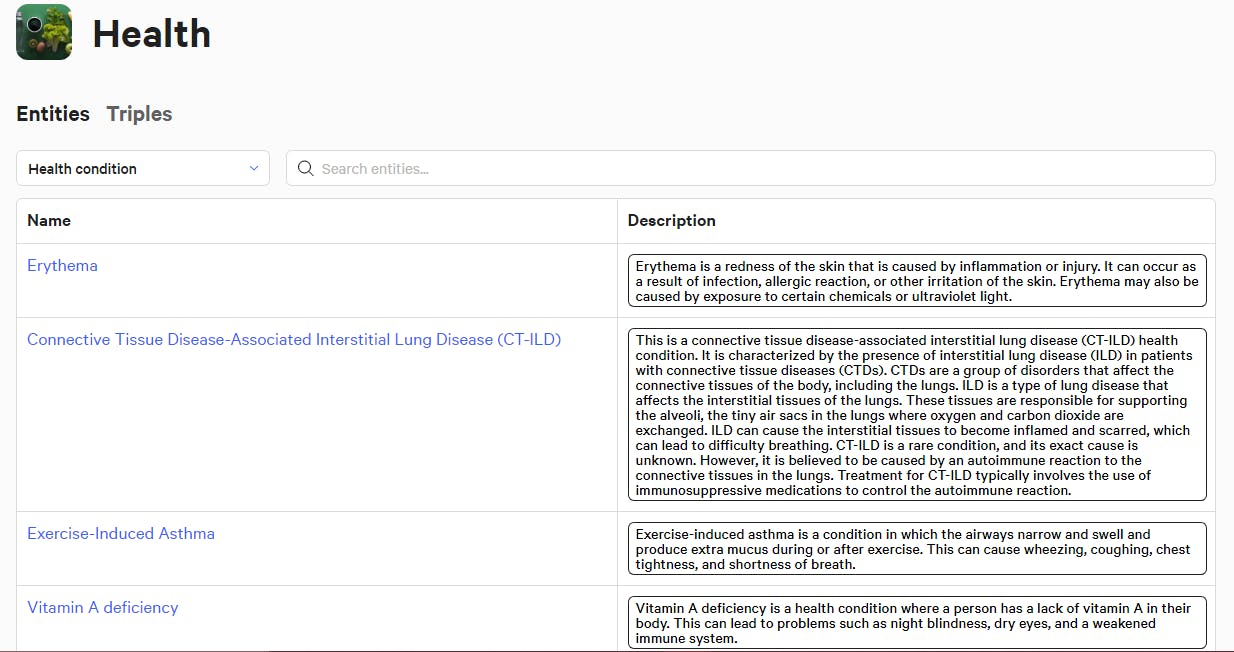
Decentralization allows for more than just movies to be evaluated and reviewed by people. Services like restaurants can also be reviewed in a decentralized way. A Web3 Goodreads, for example, could provide a list of books ranked based on people's ratings without the centralized interest of big companies monetizing the data they have collected from people's usage.
The Geo Tycoons
The third phase involves using Geo to organize at the local level. San Francisco is one city that has already implemented this approach, with three spaces created to coordinate efforts to solve major problems and challenges, such as homelessness, in which the high cost of housing has worsened.
https://twitter.com/geobrowser/status/1602389037561487360
The money is not going to the right places, and most charity funds are not reaching people in need. Geospatial data can help address these issues with public policies and efficiently distribute resources with full transparency.
People are starting to organize and ask questions at the street level to research topics such as the necessary training and temporary solutions for the voting system. The public can be involved in identifying goals and subgoals.

Individuals can contribute data and information to these goals and then begin submitting proposals to receive funding in a transparent and decentralized manner based on web3 standards. This addresses a specific issue within a single city and its local community.
Investing time, effort, and research into solving this problem will demonstrate how web3 can be a useful tool for addressing real-world issues. As I write this, I am thinking about the people affected by the recent earthquake in Turkey and Syria, Palestinian refugees, and all the needy people worldwide.
We can use Geo in fun ways, such as organizing events and showcasing the best local communities offer. By focusing on these aspects, we can give communities more tools to achieve self-sovereignty and customized experiences on a local-first approach in a decentralized manner.
Conclusion
Overall, the Geo browser by The Graph is a powerful tool that enables users to access and organize vast amounts of decentralized data, information, and knowledge. Geo Genesis and Spaces offer a user-friendly interface for organizing and curating data across various fields, including crypto, health, philosophy, and entertainment. The project is still in its early stages. Yet, it can potentially revolutionize how we organize and access information and solve real-world problems decentralized and transparently.

